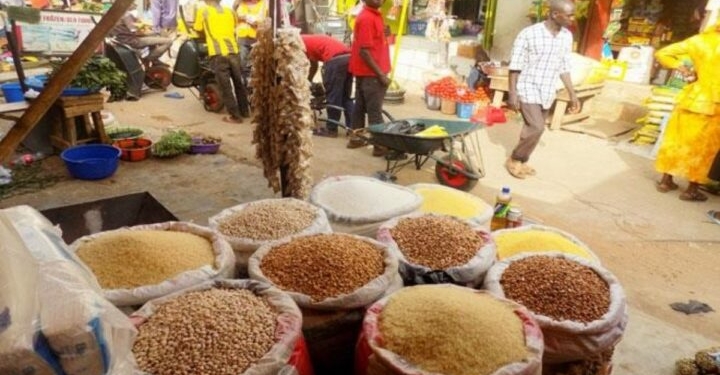- Inflation has remained high in Africa’s largest economy
- Inflation prompting CBN to hike interest rates to their highest levels in nearly two decades
Nigeria’s annual inflation rate rose to 22.79 per cent in June from 22.41 per cent in the previous month, the National Bureau of Statistics (NBS) said Monday.
The statistics office said the June inflation rate showed an increase of 0.38 per cent points when compared to May 2023 headline inflation rate.
The NBS said on a year-on-year basis, the headline inflation rate was 4.19 per cent points higher compared to the rate recorded in June 2022, which was 18.60 per cent.
“This shows that the Headline inflation rate (year-on-year basis) increased in June 2023 when compared to the same month in the preceding year (i.e., June 2022),” it said.
According to the report, the food inflation rate quickened to 25.25 per cent in June from 24.82 per cent in May.
President Bola Tinubu had, in his inaugural address on 29 May, announced the removal of fuel subsidy.
Following the announcement, the Nigerian National Petroleum Company Limited (NNPCL) directed its outlets nationwide to sell fuel between N480 and N570 per litre, an almost 200 per cent increase from the initial price below N200.
The hike immediately triggered an increase in transportation fares and prices of goods and services by various percentages.
Inflation has remained high in Africa’s largest economy, prompting the apex bank to hike interest rates to their highest levels in nearly two decades.
In an aggressive push to contain the nation’s inflationary pressure, the Central Bank of Nigeria, in May, raised its benchmark lending rate to 18.5 per cent.
WITHIN NIGERIA recalls that Mr Tinubu declared an immediate State of Emergency on food insecurity to tackle the increase in food prices.
He also directed that “all matters pertaining to food & water availability and affordability, as essential livelihood items, be included within the purview of the National Security Council.”
He said: “We will immediately release fertilizers and grains to farmers and households to mitigate the effects of the subsidy removal. There will be an organic synergy between the Ministry of Agriculture and the use of water resources to ensure adequate irrigation of farmlands and to guarantee that food is available all year round.”










Discussion about this post